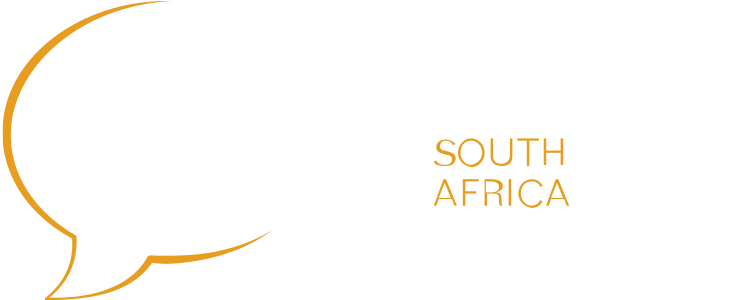Press release: Freedom of speech at risk as UCT places guest lecture “on hold”
Press release:
Freedom of speech at risk as UCT places guest lecture “on hold”
Free speech and academic freedom are once again at risk at the University of Cape Town (UCT).
On 10 October, UCT announced that the 2024 Vice-Chancellor’s Open Lecture would be delivered on 17 October by alumnus Claudius Senst, the chief executive of Bild newspaper, Germany’s largest daily by circulation. Mr Senst has recently been appointed chief operating officer of German multinational mass and online media company, Axel Springer SE.
But one day before the event, on 16 October, the university announced that it had decided to put the event on ice “to allow for further discussions” in the light of “deep concerns” expressed by “stakeholders”.
In his statement, UCT vice-chancellor Professor Mosa Moshabela said: “The conversations that have taken place since the announcement of the lecture indicate, without doubt, that in its current format and at this present moment, the lecture would have had a polarising effect on campus. It therefore became important to pause the event, and allow for further discussions to take place without the time pressure.”
Professor Moshabela added that he considered it among the “ideals” he had expressed on taking office in August “to build unity on campus and, related to this, to build consensus whenever possible”.
Says Sara Gon, director of the Free Speech Union of South Africa (FSU SA): “The first most obvious question is why UCT should believe it has a duty to protect the public from polarising opinions when preserving the contest of ideas is surely
Professor Moshabela added that he considered it among the “ideals” he had expressed on taking office in August “to build unity on campus and, related to this, to build consensus whenever possible”.
Says Sara Gon, director of the Free Speech Union of South Africa (FSU SA): “The first most obvious question is why UCT should believe it has a duty to protect the public from polarising opinions when preserving the contest of ideas is surely the central value of academic life.”
Gon points out that while Professor Moshabela declined to give the real reason for putting the lecture on hold, the public has learned from a News24 article that the reason for the “stakeholder objection” to Mr Senst was “concerns about the publication’s [Bild's] pro-Israeli stance”.
FSU SA notes with great concern the risk that UCT may be tempted to undermine academic freedom and free speech merely because there are differences of opinion in the society it serves.
As Anton Harber, executive director of the Campaign for Free Expression, is quoted as saying in the News24 article: “Either you believe in the value of hearing and engaging with even those views and opinions that repulse you, or you don’t. And when a university does not tolerate discussion and ideas, it is compromised.
“You can choose not to attend, you can choose to protest, you can engage and argue, but it is distressing when you close down even the possibility of discussion.”
This is underscored by South African Jewish Board of Deputies chairperson Karen Milner's comment to News24: “It is a fundamental breach of academic freedom and freedom of expression. UCT will be the poorer if they continue to concede to these bullying tactics as they isolate themselves increasingly from anyone with a worldview that differs even slightly from their own.”
As things stand, the risk is that UCT will repeat its 2016 error when Danish journalist Flemming Rose, whose willingness to defend free speech in the Mohammed cartoon controversy attracted considerable hostility, was invited by UCT's Academic Freedom Committee to give an annual memorial lecture, only to be summarily disinvited by UCT's executive.
Back then, the reason given was possible conflict on campus, the security risks associated with allowing the lecture to go ahead, and the possibility that this would “retard rather than advance academic freedom”.
As the then COO of the Institute of Race Relations (IRR), Gwen Ngwenya, said in an article in Daily Maverick at the time, disinviting Mr Rose “nudged the needle further towards fear, intellectual cowardice and the violation of freedom of expression; not only the speaker’s, but the potential audience’s freedom to receive information or ideas”.
Accordingly, the IRR hosted Mr Rose at its prestigious Hoernlé lecture in 2017.
The Free Speech Union South Africa will be writing to UCT to request an explanation for why it believes it has the duty to protect the public from polarising opinions, how it might decide which opinions to protect the public from, and how it could prove its impartiality in any such process.
The FSU will be sharing UCT’s response with the public and will also urge the university to demonstrate its commitment to free speech by renewing its invitation to Mr Senst to speak rather than cancelling him.
--- Note to editors ---
The Free Speech Union South Africa is a unit of the IRR. It will be co-hosting the 2024 IRR Hoernlé Lecture at 5.30pm on 29 October 2024 at the Country Club Johannesburg in Auckland Park. Attendance is free but seating is limited; members of the media and members of the public wishing to attend are requested to e-mail their names and the number of attendees info@freespeech.org.za. The event will also be streamed live. Adv Mark Oppenheimer, president of the IRR Council, will be delivering the 45th Hoernlé Lecture on the topic: “Should hate speech be against the law?”

